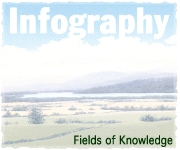
 | |
Pseudoscience | |
The following sources are recommended by a professor whose research specialty is pseudoscience. |
· Encyclopedia of Pseudoscience, ed. William F. Williams, Facts on File, 2000; four short introductory essays make sound points, from several viewpoints, about what gets classified as pseudoscience. The encyclopedia entries seem evenhanded, as one expects from the well-qualified editorial advisers and consultants.
· Bill Beaty's Science Hobbyist Page; a wealth of sound references chiefly, but not only, about science. For pseudoscience, follow the Weird Science and Unusual Phenomena links. http://www.amasci.com/
· Henry H. Bauer, Science or Pseudoscience: Magnetic Healing, Psychic Phenomena, and other Heterodoxies, University of Illinois Press, 2001. Compares doing science with investigating claims that science ignores. Short descriptions of cases of anomalous science within science (cold fusion), outside science (Loch Ness Monster), and on-the-border science (electromagnetism and life).
· Martin Gardner, Fads and Fallacies In the Name of Science, Dover, 1957 (1st ed., In the Name of Science, G. P. Putnam's Sons, 1952). The classic book debunking popular heresies of science.
· James S. Trefil, A Consumer's Guide to Pseudoscience. Saturday Review, 29 April 1978, 16-21. An insightful discussion of the issues in separating science from pseudoscience.
· William R. Corliss, Science Frontiers: Some Anomalies and Curiosities of Nature, Glen Arm (MD): The Sourcebook Project, 1994. The Sourcebook Project has published many volumes of unexplained scientific observations culled from the archives of mainstream science.
· Thomas Gilovich, How We Know What Isn't So, Free Press (Macmillan), 1991. Excellent explication of psychological factors that incline all of us to unwarranted beliefs.
· Darrell Huff, How to Lie with Statistics, W. W. Norton, 1954. What everyone should know about scientific studies.
· Leonard George, Alternative Realities: The Paranormal, the Mystic and the Transcendent in Human Experience, Facts on File, 1995. Even-handed, informative entries.
· Encyclopedia of the Paranormal, ed. Gordon Stein, 241-54, Prometheus Books, 1996. A fairly evenhanded, though largely debunking, collection.
· The Skeptic's Dictionary: A Guide for the New Millennium. A comparatively non-polemical debunking site. http://www.skepdic.com/
· David Marks and Richard Kammann, The Psychology of the Psychic, Prometheus, 1980. Tricks of the psychic trade.
· Curtis D. MacDougall, Superstition and the Press, Prometheus, 1983. A wealth of examples of the utter unreliability of the media on matters of unorthodox science.
"The Infography about Pseudoscience"
http://www.infography.com/content/677591529524.html
© 2009 Fields of Knowledge
Essex, Iowa 51638-4608 USA